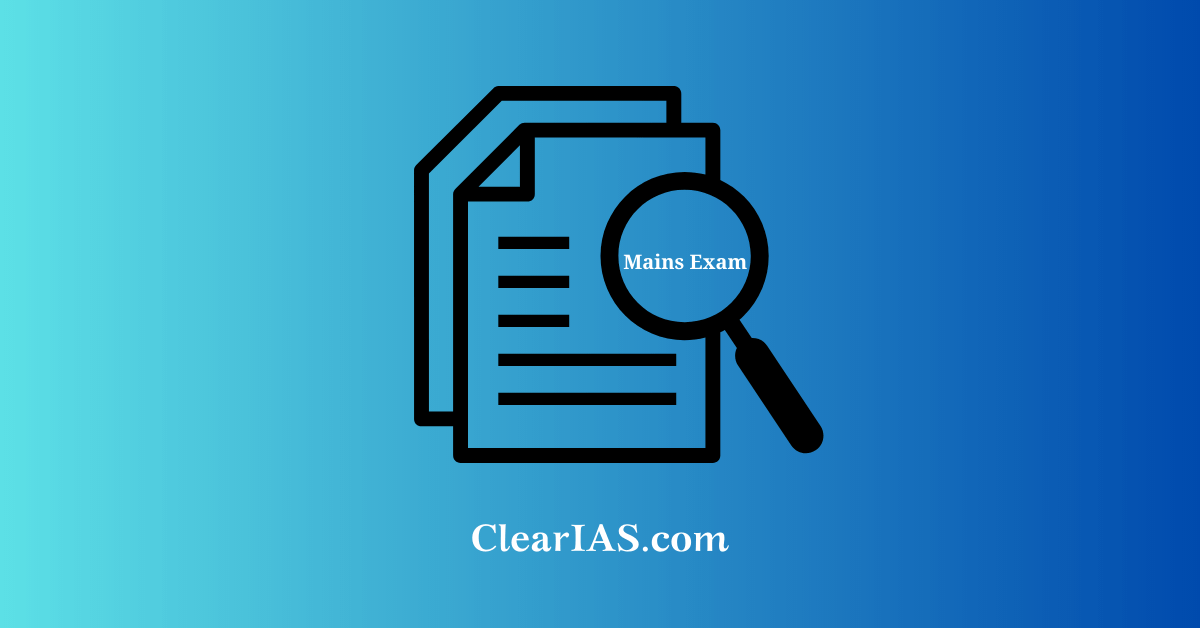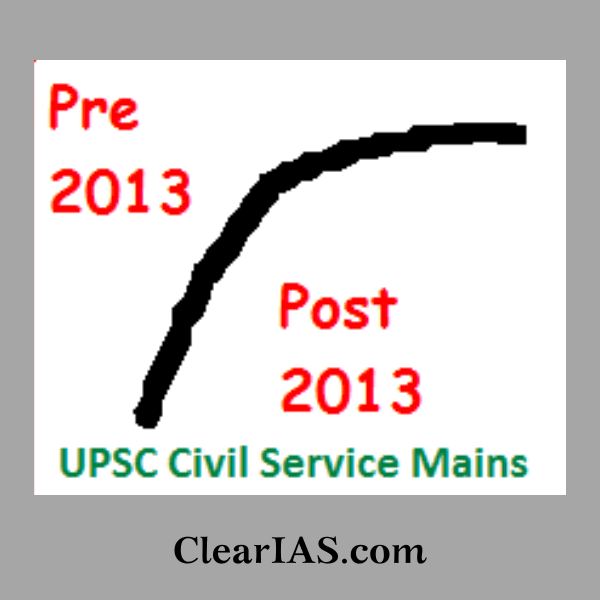 UPSC Civil Services Mains has been evolving through years. But year 2013 turned out as a watershed moment in UPSC Mains exam history, dividing the mains preparation strategies into pre-2013 and post 2013.
UPSC Civil Services Mains has been evolving through years. But year 2013 turned out as a watershed moment in UPSC Mains exam history, dividing the mains preparation strategies into pre-2013 and post 2013.
The changes brought in, changed the entire preparation scenario – study materials needed, exam strategies, weightage for subjects, selection of optional paper and time management to name a few. A similar change was made in 2011 which bought revolutionary changes in UPSC Preliminary Exam structure.
But who gained most from these changes? Who are the winners and losers? Veterans or Freshers? Generalists or Specialists? Will the objective of UPSC to select better candidates be achieved?
UPSC Civil Services Mains 2013 Mains Exam Structure
We are not attempting to repeat the mains structure in detail again, as it was analysed before. But as it is known to everyone, the pre-2013 scenario of 1200 marks for optional papers and 600 marks for general studies was totally reversed in 2013 which made huge impact in the input needed from candidates.
2013 Mains Exam provided for 1000 marks in general studies and 500 marks in optional subject. So, if it was the case of studying 2 optionals well, to clear IAS before 2013, now it is the case of studying 4 GS papers (and the near 20 sub divisions inside it) to clear IAS. The shift in balance from optionals to general studies demanded more effort from the candidates’ side.
The role of optional paper got reduced, but it still can influence the final rankings. But as a whole, it can be seen that from 2013 onwards, the candidates will be tested more on multiple areas and abilities and the selected candidates will have more general awareness ( as the specialist knowledge on two optionals will not help any more!).
Comparison of Mains Syllabus before and after change

UPSC Civil Services Mains Syllabus revision in 2013 added many new areas. But on a closer look it becomes clear that what UPSC tried in 2013 is to explicitly specify in the syllabus certain areas of importance, where the UPSC has plans to ask questions from.
Pre-2013 exams also had questions from these areas, though it was not mentioned specifically in the syllabus. Most of these questions then, belonged to a category called ‘topics of current national and international importance’.
Pre 2013 Topics retained in GS Mains Papers are the following :
- Indian History (Modern India) + Indian Culture and Heritage (Ancient India).
- Indian Polity.
- Indian Economy.
- Science and Technology.
- Environment and Bio Diversity.
- India and the World ( IR).
- International Affairs & World Organizations.
Additional topics added in GS Mains as per revised syllabus in 2013:
- Post Independence History of India.
- World History.
- World Geography + Economic Geography of India.
- Physical Geography.
- Indian Society – Women, Development, Urbanization, Globalization, Communal-ism etc.
- Disaster Management + Internal Security.
- Ethics and Human Interface : Society, Great Personalities.
- Attitude.
- Aptitude.
- Emotional Intelligence.
- Contribution of thinkers and philosophers.
- Values and Ethics in Public Administration.
- Probity in Public Life – Case studies covering all.
Veterans vs Freshers
Pre 2013 mains scenario had given an edge to veterans ( those who are writing mains for more than 1 time and those who are already in service). It cannot be said that this edge is completely lost with 2013 pattern, but the pattern gave a more level playing ground.
The mix of pre-2013 topics along with new subjects like ethics gave better hope for every one. But the retention of one optional made things easy for experienced candidates as they could concentrate on the current issues related to General Studies.
In post-2013 scenarios, freshers are advised to start early and finish their optional paper at the earliest so that they can devote their full-time and energy for General Studies paper.
Generalists vs Specialists
2013 mains strictly followed what was mentioned in UPSC syllabus. The aim was to pick a well-educated candidate and not a specialist. The general studies papers of 2013 were easy when compared to 2012 mains questions. Hot topics in news were picked.
Objective of UPSC : To select the best candidate for the job
The change of ‘more weightage to general studies’ is a welcome move. It is clear that, the aim of UPSC is to select candidate with wide general awareness. It seems it was because of this objective that UPSC asked 25 essay questions on first three papers of GS – GS1, GS2 and G3. UPSC avoided 1 or 2 markers which tests knowledge tit-bits.
It should also be noted that finishing 25 essay questions within 3 hours, is never easy. This exam pattern asks for high writing speed along with knowledge. The scope for detailed analysis was also limited. But one thing is clear in post 2013 scenario – to clear UPSC exam in future require more hard work and wide reading than what was necessary in pre-2013 period.
UPSC is now focusing only on the best brains in the country.
What do you need to clear IAS in post 2013 UPSC exams?
- Thorough knowledge about UPSC syllabus and the areas mentioned.
- Basic awareness about all current issues related to UPSC syllabus.
- Ability to write concisely, without compromising on the content.
- Time management skills.
- Reading and Writing Skills (Writing speed).
- Spontaneity and ability to think fast.
- Right guidance for prelims and mains.
- Right strategy.






after 2013 when will the upsc cse syllabus change???? is there any possibility to change in 2019-2020? how often do upsc cse syllabus get change??